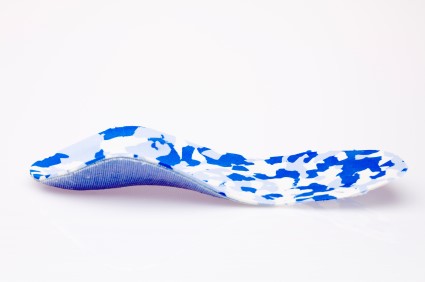
Ongoing foot pain can often be debilitating for those suffering from the discomfort. In order to help alleviate the pain, a podiatrist may suggest you wear custom orthotics. Custom orthotics fit perfectly for your foot and are made specifically for your type of foot condition. For some, orthotics make performing day to day activities easier and less painful.
Orthotics are especially useful for those with foot pain and those who may have fallen arches. Orthotics may help properly reposition the structures of the foot, easing the pressure and rebalancing the distribution of weight on the feet. Those with arthritic feet or those experiencing pain due to plantar fasciitis may find relief with orthotics, as they also tend to find issues with arch complications. Orthotics are a great way to give your feet extra support, which can come in handy for those who tend to stand or work on their feet for the majority of the day. The next type of patient who made aid in the use of orthotics are those with diabetes. It’s more likely for those with diabetes to develop corns and calluses. When this occurs, the friction of the corn or callus against your footwear can be extremely uncomfortable and painful. Orthotics, in this instance, can be useful in reducing the pressure placed upon the affected areas.
If you’d like more information about the type of orthotics that is best for your condition, we suggest you speak with a podiatrist for a professional recommendation.
What are prescription orthotics?
Orthotic devices are custom made shoe inserts that are intended to correct an abnormal or irregular walking pattern. Orthotics can make standing, walking, and running more comfortable and efficient by restoring proper foot function and balance. Podiatric physicians prescribe the use of orthotics as a conservative approach to many foot problems. The use of orthotics is a highly successful and practical form of treatment.
Different types of prescription orthotics:
Orthotics fall into three broad categories: rigid, soft, and semirigid. Rigid orthotics are designed to control function. They may be made of a firm material, such as plastic or graphite. Soft orthotics help absorb shock and take pressure off uncomfortable or sore spots. Semirigid orthotics provide dynamic balance of the foot while walking or participating in sports. These dynamic orthotics help guide the foot through proper functions, allowing the muscles and tendons to perform more efficiently.
